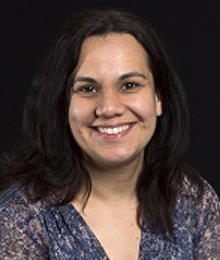An interview with Dr Gemma Walton
December 2019
Dr Gemma Walton is a Lecturer in Metagenomics at the University of Reading and a member of the Microbiology Society. In this interview she tells us more about her research into the gut microbiota; how it develops alongside us and is influenced by our lifestyles.

Tell us more about your research
My area of research is the gut microbiota; I study faecal bacteria in different health states and look at approaches we can use to change our microbial communities to ultimately have a positive effect on health. Much of my research uses in vitro models of the large intestine (developed by Professor Glenn Gibson) to see the impact of different foods, micronutrients, prebiotics, probiotics and antibiotics on faecal microbial communities. This can allow us to see the potential of a food to cause positive changes in the microbiota and its metabolites – which, if promising, is something we can then take forward into human trials.
With the growing interest in the gut–brain axis, we are currently looking at neurotransmitter production by the gut microbial community and how this could be impacted by diet, research that we are conducting in collaboration with our psychology department where we are also running human trials.
Why does microbiology matter?
Microorganisms are all around us, in us and on us; in fact, our own gastrointestinal microbiota grows with us and within us. This microbial consortium is heavily influenced by the foods we eat and the environmental conditions we create.
The microbes present are not just passive diners within our gastro-intestinal tracts, far from it – they are actually breaking down our non-digestible foods and producing end products, or metabolites that can have an impact on our health.
Why is the gut microbiome important to microbiology?
Within each of us, through our gut microbiota, we have a huge potential to influence our health, so by learning more about our microbial inhabitants we can find small ways to improve health and make a big difference.


